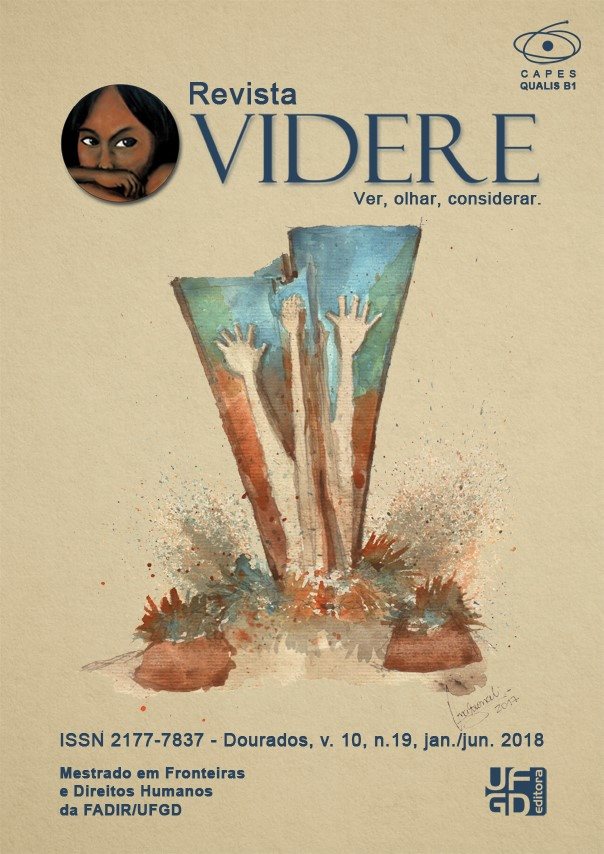O nazismo no Supremo Tribunal Federal: notas sobre o julgamento da extradição de Franz Stangl
DOI:
https://doi.org/10.30612/videre.v10i19.7188Keywords:
Extradição. Nazismo. Crimes de guerra. Supremo Tribunal Federal.Abstract
Finda a Segunda Guerra Mundial, diversos líderes nazistas fugiram para países do hemisfério sul para escapar da responsabilização pelos seus atos. Um dos mais famosos, Franz Stangl, veio viver no Brasil. Com a descoberta do seu paradeiro, governos estrangeiros pediram a sua extradição, gerando um dos mais famosos julgamentos do Supremo Tribunal Federal. Busca-se neste trabalho problematizar as principais questões apresentadas pela defesa de Franz Stangl perante o judiciário. A pesquisa é relevante por ser um caso que colocou o Brasil no centro das atenções acerca da cooperação jurídica internacional para a punição de nazistas. A metodologia investigativa foi a historiográfica. A análise baseou-se no material empírico e literário da época. Na primeira seção, foi avaliada a possibilidade extradicional com relação à necessidade de comutação de eventual penalidade perpétua em temporária; em seguida, discutiu-se o argumento do tribunal no tocante à possibilidade de extraditar o responsável pelo cometimento do crime de genocídio quando o Brasil ainda não havia tipificado tal conduta em seu ordenamento; por último, teceram-se considerações sobre a pertinência da alegação defensiva de Franz Stangl ter agido com base no seu dever de obediência hierárquica. É possível concluir que, no tocante aos argumentos de necessidade de comutação de pena perpétua em temporária e dupla tipificação criminal, o Supremo Tribunal Federal apresentou conclusão problemática frente à ordem jurídica nacional; já com relação ao argumento de obediência hierárquica, agiu bem a corte ao não se imiscuir na materialidade e autoria do comportamento dito delituoso.Downloads
Downloads
Published
How to Cite
Issue
Section
License
Authors must accept the publication rules when submitting the journal, as well as agree to the following terms:
(a) The Editorial Board reserves the right to make changes to the Portuguese language in the originals to maintain the cultured standard of the language, while respecting the style of the authors.
(b) Authors retain the copyright and grant the journal the right to first publication, with the work simultaneously licensed under the Attribution-NonCommercial-ShareAlike 3.0 Brazil (CC BY-NC-SA 3.0 BR) that allows: Share - copy and redistribute the material in any medium or format and Adapt - remix, transform, and create from the material. CC BY-NC-SA 3.0 BR considers the following terms:
- Attribution - You must give the appropriate credit, provide a link to the license and indicate whether changes have been made. You must do so under any reasonable circumstances, but in no way that would suggest that the licensor supports you or your use.
- NonCommercial - You may not use the material for commercial purposes.
- Sharing - If you remix, transform, or create from material, you must distribute your contributions under the same license as the original.
- No additional restrictions - You may not apply legal terms or technological measures that legally restrict others from doing anything that the license permits.
(c) After publication, authors are allowed and encouraged to publish and distribute their work online - in institutional repositories, personal page, social network or other scientific dissemination sites, as long as the publication is not for commercial purposes.



















